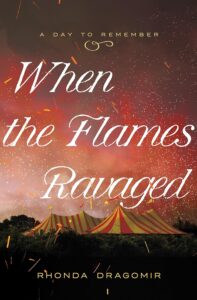Have you ever hankered to write historical fiction? Before you walk that particular yellow brick road, be sure you pack your ruby slippers.
that particular yellow brick road, be sure you pack your ruby slippers.
You might be suited for historical fiction Oz if…
- You stop the car to read roadside historical markers.
- You follow a trail of hyperlinks during your Wikipedia research on FDR until you come to your senses while reading “Medieval Medicine of Western Europe.”
- You can name the ranks of British aristocracy from top to bottom. Extra credit: You can correctly name the proper title of the wife of a marquess.
If you loathe research, take the first tornado back to Kansas. Readers of historical fiction are more fearsome than flying monkeys. They will take you captive for blunders about customs, attire, or other historical minutiae. You must master not only chronological facts but also the cultural, religious, and ethical mindsets of people who lived in another era.
Why make the extra effort? Scripture says, “What has been will be again, what has been done will be done again; there is nothing new under the sun” (Ecclesiastes 1:9 NIV). Against the backdrop of their Oz, historical fiction writers may comment on current social issues while shielded somewhat behind a filmy veil of time. Characters wrestle with the same conundrums we do, and their victories or failures may prompt modern readers to self-examination.
In my debut historical romance, the widowed heroine fights a legal system prejudiced against single women of modest financial means. This is an accurate depiction of 1944, but readers should also acknowledge women like her sometimes suffer injustices today.
History is instructive. Many so-called modern ideas are merely recycled from dramas already played out in human history. My next novel is set in Latvia in 1945, and I will plunge a dagger into the evil heart of antisemitism. We need not pull back the curtain on this foul movement to know what wizard lurks there—it’s Hitler. Amanda Barratt’s Christy Award-winning novel, Within These Walls of Sorrow, should be required reading on every university campus to enlighten and shape modern attitudes toward Jews.
Historical fiction writers are armed with a big bucket of truth. When hurled in the right direction, it may dissolve certain cultural wicked witches.
If you have the desire and the moxie, heave ho.
_________________________
Rhonda Dragomir is a multimedia creative who treasures her fairy tale life in Central Kentucky, insisting her home is her castle even if her prince refuses to dig a moat. Rhonda is an award-winning writer, with published works in anthologies by Chicken Soup, Revell, and Guideposts. Her debut novel, When the Flames Ravaged, was released by Barbour Books February 29, 2024. Contact Rhonda on her website.

